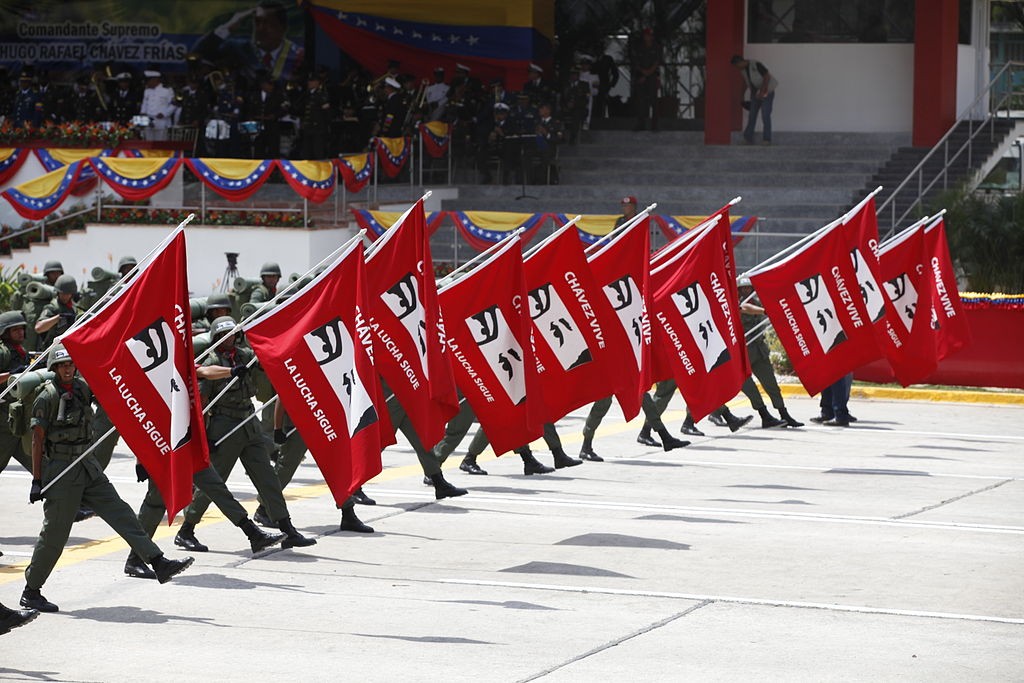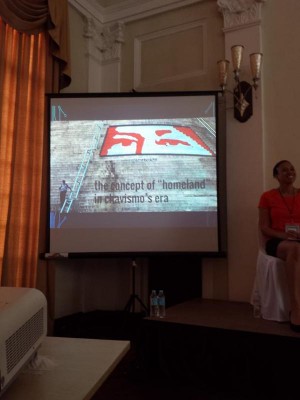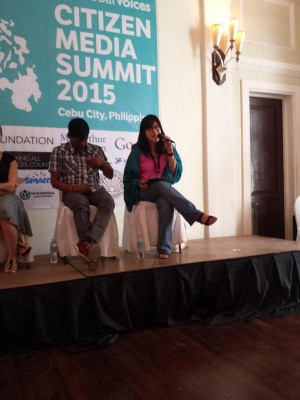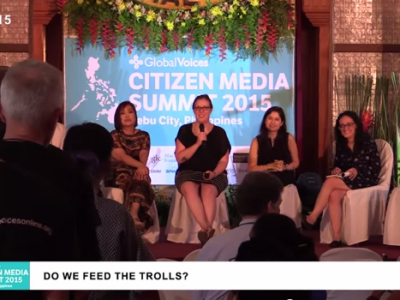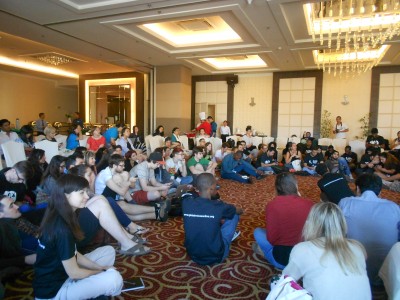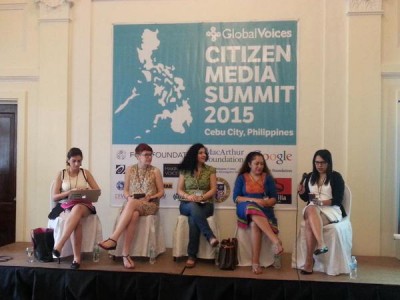This is a summary of the notes from my participation in the panel “Gagged in the name of God & Country”, at the Global Voices Citizen Media Summit 2015 in Cebu City, Philippines.
Since the rise to power of Hugo Chávez in 1999, the construction of the so-called “socialism of the 21st century” has been intrinsically tied to the concept of homeland as something that needs to be defended against an enemy, either external or internal. The concepts of “homeland”, “country”, “state”, “government” and “chavismo” have been so deeply linked that are no longer recognizable from each other.
We weren’t a very patriotic country before, and in my opinion, this absence of a cohesive, unitary national identity has been leveraged by this political movement, aiming to fill this void and create in the collective conscience a concept of “homeland” which definition has become undistinguishable, even for dissidents, from the reigning political system. This means, of course, that any threat to the status quo of the party’s policies is also deemed a threat to the homeland itself, a treason to be punished with the highest of penalties.
(The “But we have homeland” punchline actually became an extremely overused, worn-out joke I’m getting really tired of hearing from people who oppose the government. Weren’t we supposed to be creative and original people? Where did that go?)
Chavismo, and the figure of Chavez himself, have also been sacralized, specially after his demise in 2012. His face, which was already everywhere, in buildings and murals and in every public office, was morphed into logos and became the center of a political religion, with chapels and shrines. Thousands of people got tattoos of his signature, and there are statuettes of him everywhere throughout the country. “Chávez lives” is the government’s most used motto.
Now, through Chavez government, there was a document called the “homeland plan”, which contained the philosophical and political guidelines for his “21st century socialism”. After Nicolas Maduro took office, this “homeland plan” became a law.
This homeland law sets, amongst many other things, the priority of creating a “communicational hegemony”, and “strengthening the use of media for the transition to socialism”. This stablishes the foundation for censoring any form of expression that somehow threatens the political structure of chavismo, and lays the basis for considering dissidence an issue of treason against the homeland.
Once stablished that anybody who dissents with the government and its measures is a traitor, it’s obviously unnaceptable that any of those traitors continues working for the public administration (because, as you remember by now, the State is the government, and the government is the homeland). A hotline and an email account were created so that “cooperating patriots” could denounce people who weren’t supportive of the government and were working at the public administration.
A few months ago, the National Assembly started discussing a law (the reform of an earlier law) where it would be created the crime of “cyberterrorism”. “Cyberterrorism”, in this draft bill, is qualified as “to alter gravely the public peace of the Nation through the use of massive electronic media”, and would be punished with prison from 1 to 5 years. It also would allow any citizen who suspects that someone might be guilty of this or other charges of “terrorism”, to detain them and and cut them off for up to 48 hours. It might be worth to notice that without the law being passed, there are social media users imprisoned for making a joke on Twitter, that joke being considered as a disruption of public peace.
As I said a few days ago in another post, if you aren’t the enemy, the Big Brother takes care of you, and you get to follow its commands. It’s oppresive, but you’re safe.
If you are the enemy, on the other hand, you have to protect yourself. You are a traitor. You are a person without a country, without a homeland. You’re stateless.


